Three Lancia Beta Coupes For $1,200
It’s rare to see even one Lancia Beta coupe, but this vendor in Gardendale, Texas has put three of them for sale as a package on Craigslist. The “bundle deal” is a mere $1,200, and you’d be nuts to only take one of them for $650. It’s a treasure-trove of parts.
Two of the cars, a silver 1981 manual (the best one) and a 1979 red two-liter automatic example are deemed to be buildable. The third one, quite interesting, is a 1978 rally car with the 1.8-liter engine. It appears to have been raced in Holland, from the stickers. It’s “very poor and rusty, but very complete, only missing the hood.” The silver car seems to be missing its front bumper, but maybe it’s around somewhere.
In Europe, they’d probably discover that the rally car had been campaigned by Nigel somebody-or-other at Zandvoort in 1980, and give it a big high-dollar restoration. In the U.S., unfortunately, it’s a parts car.
All the Betas need work and all of them have rust, though the silver car (which was registered in New Jersey) looks pretty good in that regard. They’re all complete except for that missing hood.
These Beta Coupes were 2+2s introduced in 1973, small cars with 92.5-inch wheelbases. At launch, both 1.6 and 1.8 liter engines were available. The two-liter appeared in late 1975. And the automatic came in 1978, when power steering was also made available. These are all carbureted cars—Bosch fuel injection wasn’t available until 1981. The U.S. got the two-liter twin-cam four producing 108 horsepower.
A cool variation on these cars were the Zagato convertibles with removable targa panels, first seen in 1975. Some of these got to America, with 1.6 or 2.0 power. The Spiders were actually designed by Pininfarina (and look it), though the actual build was Zagato. Some 9,390 were produced.
Some interior photos would have been good. It’s not clear if any of these cars run, but probably not. Surely, somebody will get a bargain, making one very nice Lancia Beta Coupe from three examples. Classic.com lists the Lancia Beta as averaging $9,151, but that’s across all variants from 1972 to 1985. Somebody got $33,000 for one, but that was the performance HPE station wagon introduced in 1975.
Auctions Ending Soon
 2006 Ford Mustang Saleen S281 SCBid Now22 hours$15,000
2006 Ford Mustang Saleen S281 SCBid Now22 hours$15,000
 2002 Subaru Impreza WRXBid Now3 days$100
2002 Subaru Impreza WRXBid Now3 days$100
 1975 Chevrolet Corvette ConvertibleBid Now3 days$3,000
1975 Chevrolet Corvette ConvertibleBid Now3 days$3,000
 1964 Ford F-100 Camper CustomBid Now4 days$2,000
1964 Ford F-100 Camper CustomBid Now4 days$2,000
 2006 Jeep Wrangler SportBid Now5 days$7,500
2006 Jeep Wrangler SportBid Now5 days$7,500
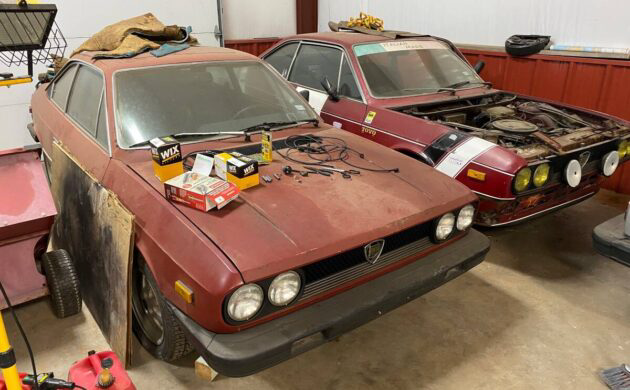
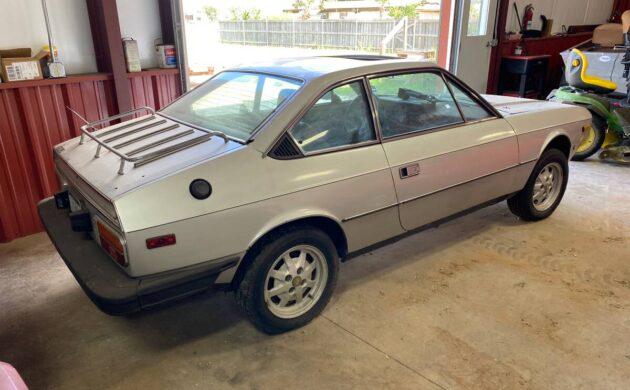

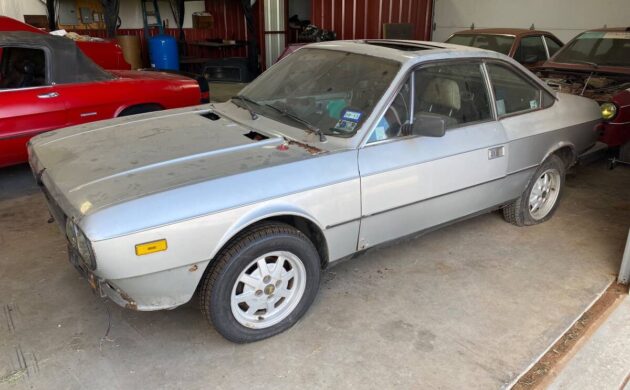
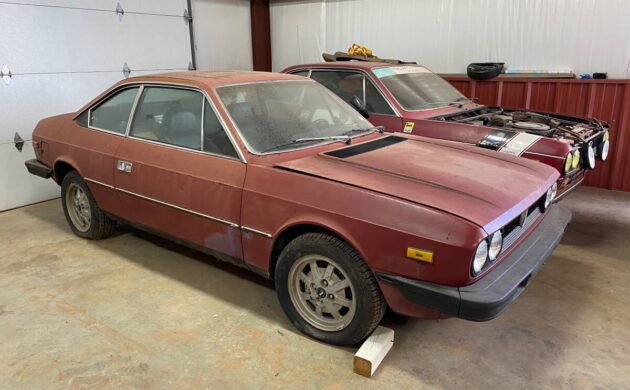
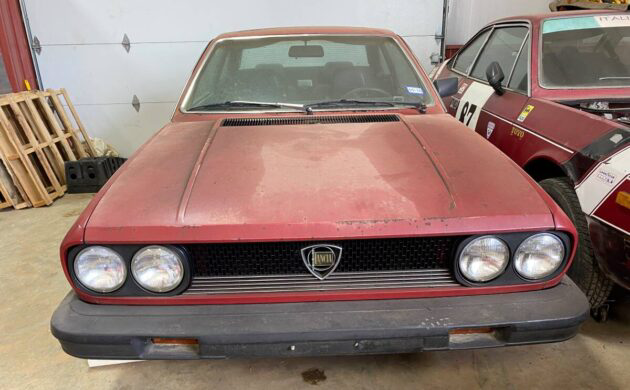
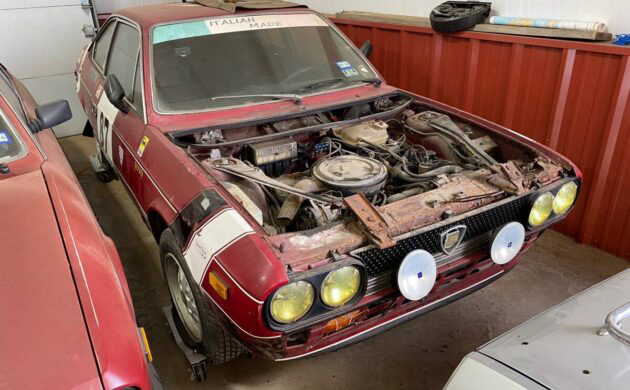

Comments
I had a 1975 Lancia Beta
Great car. Had 4 wheel disc and leather seats. Drove two years in college.
Watch out for rust …
I always loved the look of these. My only saving grace is I’m too far away to snatch these up. If I bought them I could only keep one as rumor has it if you have more Betas in one bowl they will ultimately fight to the death. Maybe that’s what happened here?
High school fried bought one in 1979 from a private party mechanic who repaired and sold cars for sale as a sideline from his home. Great car, but you almost needed a valid passport to get parts and a live-in mechanic to work on it. When he went to the RMV to get it titled and registered, the clerk behind the counter asked: “What the hell is a ‘Lan-see-ah Beat-ah’?”, not “Bet-ah”, like the Greek letter!
These will not last. They will be gone by the time someone reads this. What a deal! I am in PA …. transport would eat up a bit but storage…..a whole new game. These are excellent autos that are well engineered as evidenced by their racing and rallying histories. I would love to have the rally auto shown here!
I guess if you like these sounds like a deal. All I know is every Italian car I’ve ever worked on back in the day was junk especially Fiats.
Lancias are not junk.
FIATs neither. Pretty much the only thing Lancia on a Beta is the badge and none the worse for that. The engineering is good and logical, rather than over-complicated.
Re: “Pretty much the only thing Lancia on a Beta is the badge”
Incorrect. Pretty much the only thing Fiat about a Beta is the DOHC engine designed by Aurelio Lampredi, which was the most advanced and efficient in Europe at the time, so a real no-brainer for Lancia to adopt for fast-tracking development of the Beta as a long-overdue replacement for the aging Fulvia. Even so, Lancia revised many aspects of the engine to make it suitable for transverse FWD application, which Fiat had yet to do with that engine by then, where they also leaned-back the block by 20° for a lower hoodline and better weight distribution over the front axles.
Oh, and the Beta sedan’s styling was done at Fiat Centro Stile, allowing Lancia designers to focus on styling the coupe and HPE variants. The Beta spider was designed later by Pininfarina after the production coupe debuted, but conversion of coupe bodyshells into spiders was contracted out to Zagato, which lent their name to US-market Beta spiders.
Literally everything else about the Beta was developed entirely in-house at Lancia by career Lancia engineers and designers who remained on-staff after the Fiat buyout. Engine aside, if there’s anything mechanically similar between the Beta and other Fiat models, it’s because Fiat later cribbed from the Beta, not the other way around.
Super deal for the right buyer. Ptobably as a source of parts, depending on how much rust is lurking.
Beta coupé is/was a very good car (Bertone design I think) with Lampredi engine and modern chassis design.
The engines are becoming valuable in themselves now.
The Beta coupe and HPE were designed in-house at Lancia by Aldo Castagno with consultation from the Fulvia’s designer, Piero Castagnero.
As for modern chassis design, indeed, the Beta was the very first car mass-produced to the overall mechanical-engineering formula that ultimately prevailed across the industry worldwide, boasting transverse FWD with a DOHC engine, 5-speed full-syncro transaxle, 4-wheel disc brakes with a rear-bias proportioning valve, and fully-independent strut-based suspension with a multilink rear — all common stuff as of recent decades, but few cars had any of that, let alone all of that, when the Beta debuted in 1972, nor many more when it finally retired a dozen years later.
Good parts cars, Im surprised someone like Midwest-bayless dont pick them up .
I’d have the rally car if I weren’t an ocean away…
Interesting the comments about spare parts or rather the lack of them. I thought that only applied to these here in Australia. I had a couple of coupes and a HPE (bought new) in the 70s. They were fantastic handlers and great fun but the distributors who supplied them were absolutely useless. Spare parts just didn’t exist. We had a local Ferrari dealer who also supplied these who dealt direct with the factory not the local clowns. They used to get me any parts I wanted air-freighted out from Italy. Only took a week or so.
These aren’t all carbureted. The ’78 and ’79 are, but all ’81 Lancias got standard fuel injection using the Bosch L-Jetronic system common to many other Euro models of the time, so any shop familiar with those should have no trouble sorting out any issues with the FI system on these.
Beta coupes with FI are pretty rare and desirable in the US, as most coupes imported here were the earlier carb’d versions, and most ’81-82 Lancias with FI imported were the Zagato spider variant, which was also the only variant imported for ’82, Lancia’s final year here.
The Zagato spiders also tend to be the survivors, as they were more likely be pampered, garaged, only taken out in nice weather, etc. whereas coupes were more likely to be used as daily transportation, even in winter thanks to their brilliant FWD handling in traction-compromised conditions, and most got thrashed to death long ago when they were just cheap used cars.
One more thing: North American-market Lancia Betas were all 1800s up through ’78, and all 2-liters from ’79-82; we didn’t get any of the other engine variants offered in the rest of the world. It was just simpler and cheaper to have only one engine across the line adapted and certified for emissions and other regulatory compliance here.
Our ’75-78 Beta 1800s had 85 hp in stock tune, ’79 carb’d 2-liters had 87 hp, ’81 FI 2-liters had 108 hp, and ’82 FI 2-liters had 106.5 hp (none were imported for ’80).